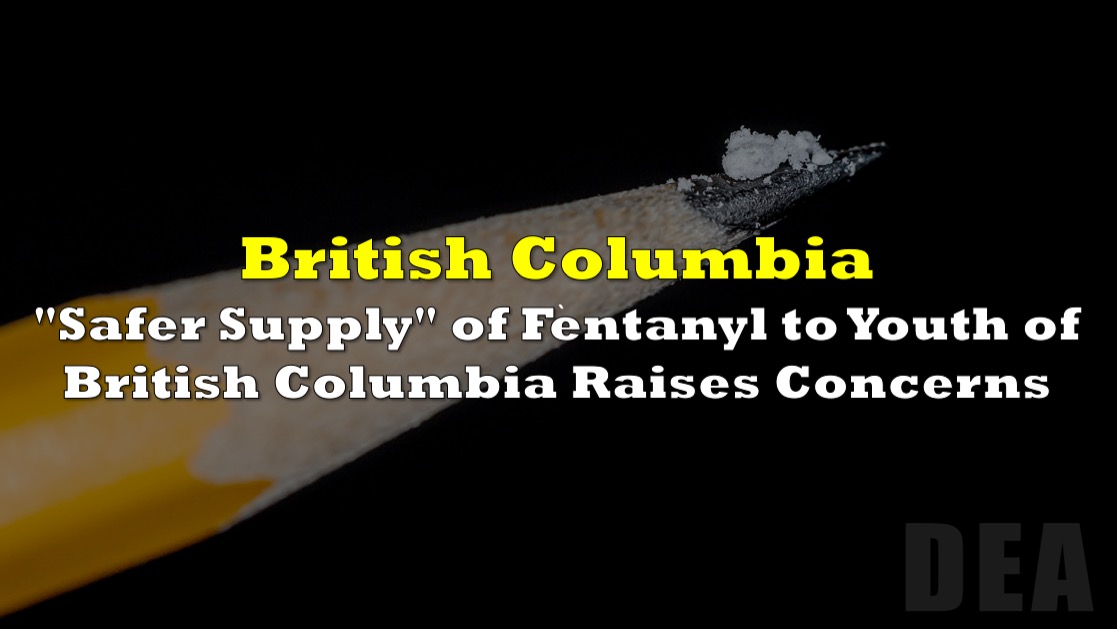The province of British Columbia has reportedly expanded the distribution of “safer supply” fentanyl to minors without parental consent. The controversial decision, outlined in protocols published by the British Columbia Centre on Substance Use (BCCSU), has sparked criticism from experts and raises ethical questions surrounding the issue of informed consent for underage individuals.
While the provincial government has been emphasizing its commitment to safer supply initiatives since 2020, the recent protocols introduced by the BCCSU in August have gone largely unnoticed by the public. The lack of media coverage, except for a report by the Macdonald-Laurier Institute (MLI), has allowed the distribution of “safe” fentanyl to proceed with minimal scrutiny.
B.C. to give 'safe' fentanyl to minors. And parents won't have a say | National Post
— * W. Brett Wilson * (@WBrettWilson) January 10, 2024
Time to move out of BC. They are feeding our youth fentanyl. Why? https://t.co/gZ7YVwEpdR
The protocols, aimed at providing a safer alternative for individuals struggling with addiction, have faced criticism for their perceived lack of safeguards when it comes to administering fentanyl to minors. One notable aspect is the utilization of a “two prescriber approval system” for underage patients, a measure some addiction experts deem insufficient in ensuring careful consideration of prescribing decisions.
Dr. Leonora Regenstreif, a Hamilton-based addiction physician, expressed skepticism about the effectiveness of the two-prescriber system, raising concerns about potential collusion within the same clinic.
Notably, the protocols fail to specify a minimum age for youth to receive recreational fentanyl. Despite inquiries, the BCCSU did not respond to questions regarding the absence of parental references, concerns about youth providing informed consent, and potential avenues for parents if they believe their children are being harmed by the safer supply of fentanyl.
The lack of evidence supporting the intervention, as explicitly stated in the protocols, adds to the controversy. The protocols admit, “To date, there is no evidence available supporting this intervention, safety data, or established best practices for when and how to provide it.” This admission is required for securing informed consent from patients.
Complicating matters further, British Columbia lacks a minimum age for youths making medical decisions, relying on a fluid concept of “capability.” This places substantial decision-making power in the hands of youths, despite concerns about their ability to provide informed consent, especially in the context of drug addiction.
Critics argue that drug-addicted minors may not be capable of making rational decisions due to the impact of addiction on cognitive function. The absence of a minimum age requirement, coupled with the province’s definition of capability, raises questions about the appropriateness of extending the same rights to youth in making decisions about hard drugs.
Furthermore, the potential strain on parent-child relationships caused by this decision has not gone unnoticed. Safer supply systems that do not involve parents could be detrimental to the recovery of drug-addicted youth, as parents are often crucial in the rehabilitation process.
The decision to provide recreational fentanyl to minors without parental consent also underscores a paradox in current laws. While the government allows the distribution of “safe” drugs without parental approval, it simultaneously prohibits parents from involuntarily sending their children to addiction treatment.
As concerns mount over the implications of this decision, Health Canada confirmed that it played no role in the development of the protocols. However, the federal agency has yet to respond to queries regarding any objections it may have to providing recreational fentanyl to minors.
Information for this briefing was found via National Post and the sources mentioned. The author has no securities or affiliations related to this organization. Not a recommendation to buy or sell. Always do additional research and consult a professional before purchasing a security. The author holds no licenses.









